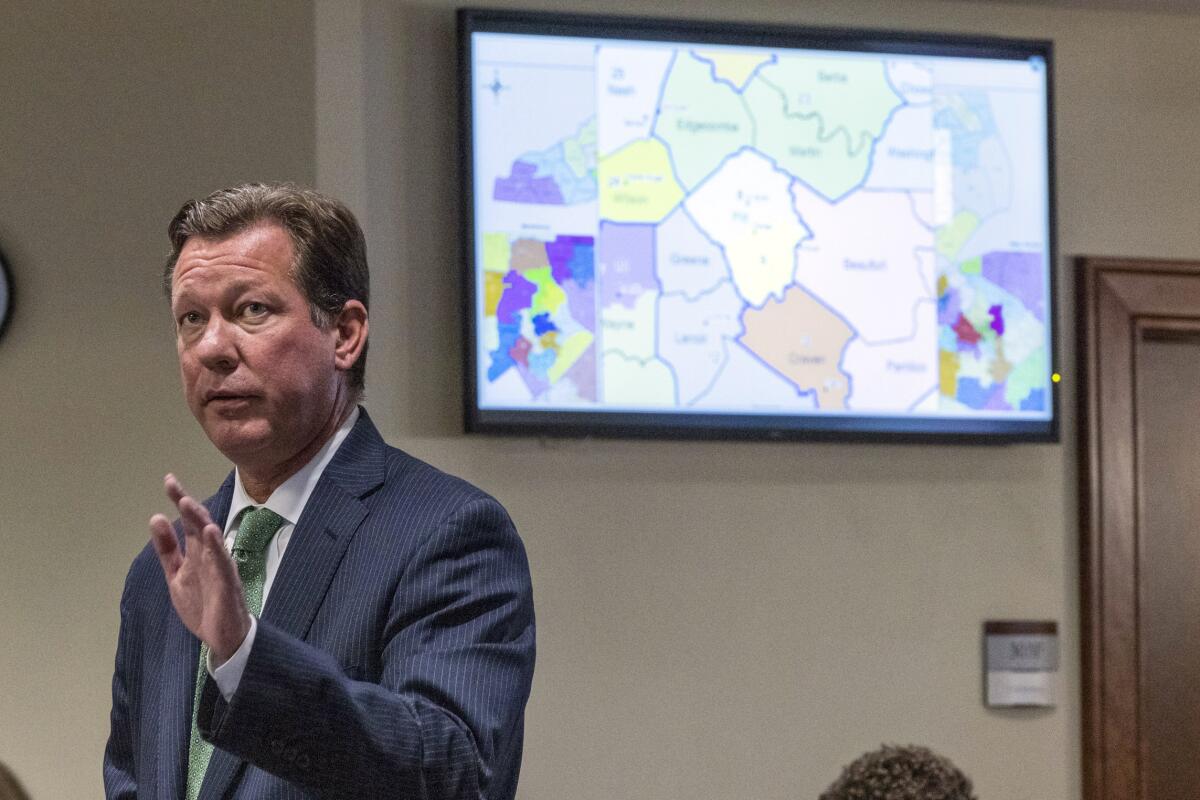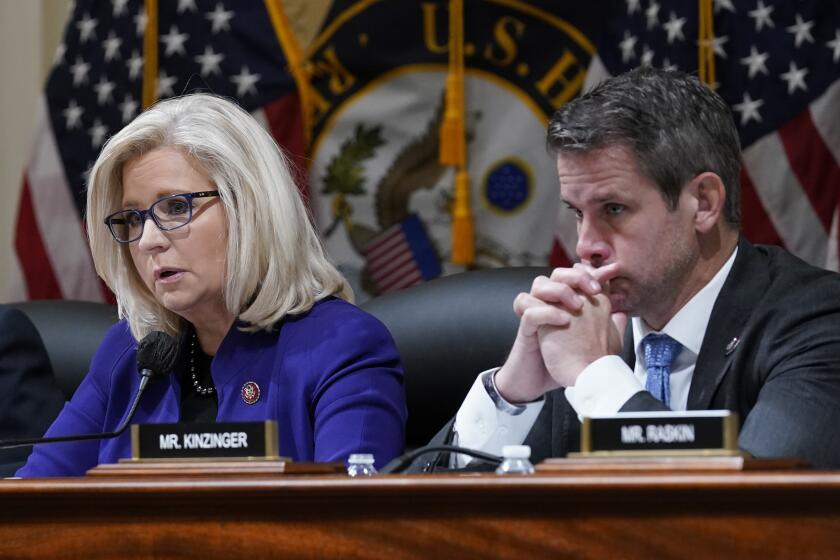North Carolina Supreme Court strikes down GOP-drawn redistricting maps

RALEIGH, N.C. — A divided North Carolina Supreme Court struck down the state’s new maps for congressional and General Assembly seats Friday, declaring that state courts had authority to throw out lines engineered to secure a long-term Republican advantage in an otherwise closely divided state.
By a 4-3 decision — with the justices who are registered Democrats making up the majority — the state’s highest court directed the GOP-controlled Legislature to redraw the plans by Feb. 18 and provide an explanation of how it calculated the partisan fairness of the new boundaries. Any replacement maps would still be used for the May 17 primaries.
The court’s decision reversed a ruling last month from a panel of three trial judges and declared that partisan gerrymandering found in the redistricting approved by the Legislature in November violated several provisions in the North Carolina Constitution. They include the right to free elections, freedom of speech and equal protections of citizens.
The trial judges had found ample evidence that the Legislature approved maps that were “a result of intentional, pro-Republican partisan redistricting.” But they declared that it wasn’t the judiciary’s place to intervene in mapmaking — a duty left to the Legislature — when partisan fairness in those plans were challenged. They called the redistricting process inherently political and said many of the lawsuits’ claims fall outside the scope of legal redress.
A majority on the Supreme Court disagreed, saying it’s the judiciary’s obligation to step in to block lines that skew a party’s control to the detriment of those with opposing viewpoints. Announced candidates for district seats may have to reconsider their decisions if boundary lines are redrawn.
Friday’s ruling is a major victory for state and national Democrats and their allies who had invested greatly in overturning the maps and thwarting Republican gains for the next decade. It could also make it harder for Republicans to retake control of the U.S. House this fall. A group associated with the National Democratic Redistricting Committee — led by former U.S. Atty. Gen. Eric Holder — supported a bloc of voters who sued.
GOP Chairwoman Ronna McDaniel was forced to clarify part of the resolution, which implied the violence of Jan. 6 was ‘legitimate political discourse.’
Lawsuits filed by voters and advocacy groups were bolstered by mathematicians and electoral researchers who presented evidence of their analysis of trillions of map simulations. They testified that the new lines were likely to give the GOP 10 of the state’s 14 U.S. House seats as well as state House and Senate majorities in almost any political environment. Republicans currently hold an 8-5 seat advantage. The state gets a 14th seat because of population growth reported in the census.
The plaintiffs argued that the enacted maps thwarted the will of the people of North Carolina and the boundaries should produce political outcomes more in line with competitive statewide elections over the past decade.
Republican legislators wanted the trial judges’ ruling to stand, noting a state Supreme Court ruling of the early 2000s that said partisan advantage can be considered in mapmaking. They said the redistricting process was transparent and prohibited the use of racial and political data.
Former Vice President Mike Pence is directly rebutting Donald Trump’s false claims that Pence could have overturned the results of the 2020 election.
Chief Justice Paul Newby, a Republican writing the dissenting opinion, said the court’s majority was seeking “to hide its partisan bias” through its decision.
“By choosing to hold that partisan gerrymandering violates the North Carolina Constitution and by devising its own remedies, there appears to be no limit to this court’s power,” he wrote.
More to Read
Get the L.A. Times Politics newsletter
Deeply reported insights into legislation, politics and policy from Sacramento, Washington and beyond. In your inbox three times per week.
You may occasionally receive promotional content from the Los Angeles Times.












